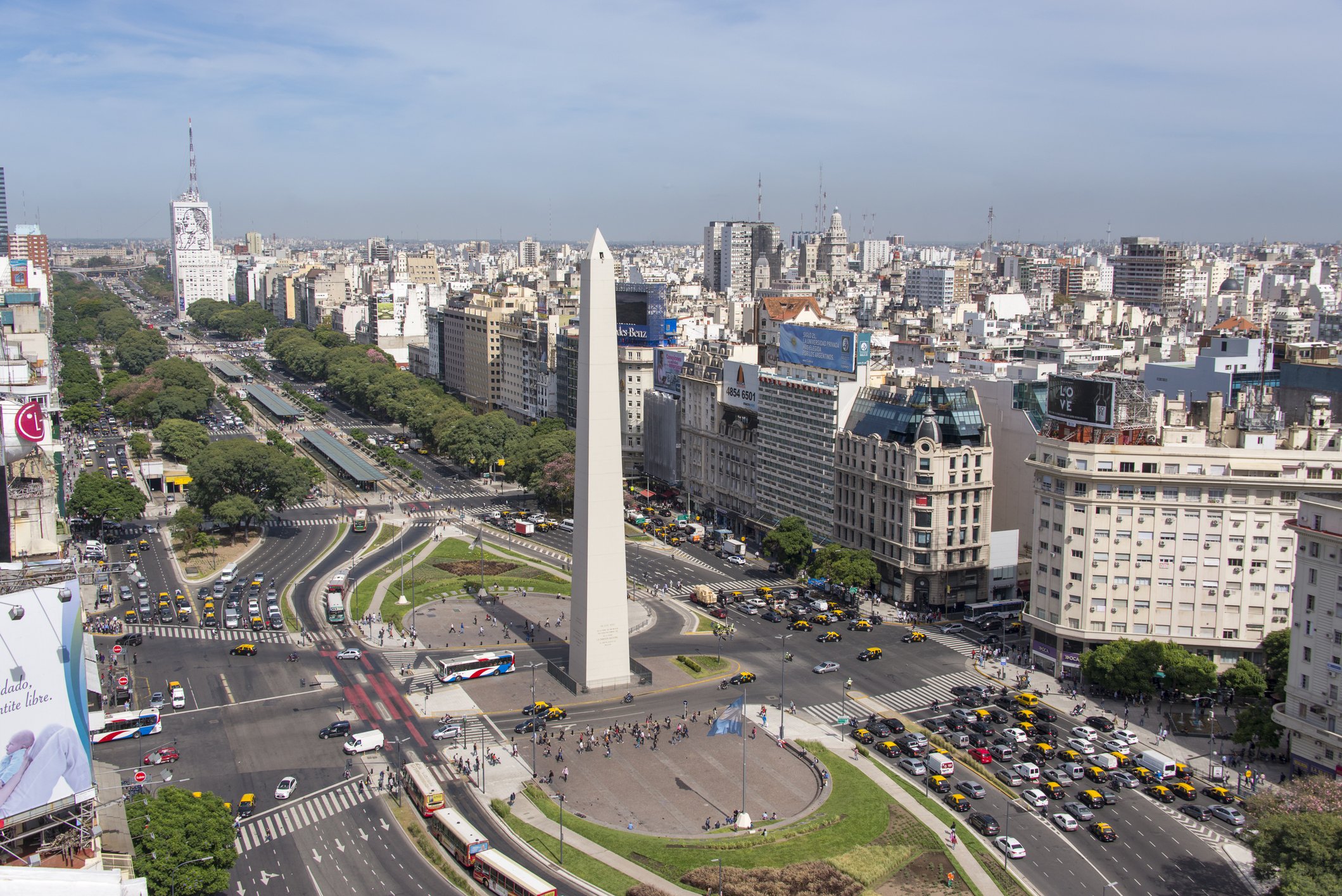
(IMF, 10.Jan.2024) — An International Monetary Fund (IMF) team, led by Luis Cubeddu, Deputy Director of the Western Hemisphere Department and Ashvin Ahuja, Mission Chief for Argentina, issued the following statement in Buenos Aires today following the conclusion of discussions on the seventh review of the Extended Fund Facility (EFF) arrangement for Argentina.
“IMF staff and the Argentine authorities reached understandings on a set of economic policies that can restore macroeconomic stability in Argentina and bring the current program back on track. This agreement, subject to continued and durable policy implementation, will be brought forward for approval by the IMF Executive Board, over the coming weeks. Upon completion of the review, Argentina would have access to about $4.7bn (or SDR 3.5 billion), consistent with some rephasing within the envelope of the program.
“The proposed disbursement is intended to support the new authorities’ strong policy efforts to restore macroeconomic stability and help Argentina meet its balance of payments needs.
Highlights:
- IMF staff and the Argentine authorities have reached staff-level agreement on the seventh review under Argentina’s EFF arrangement. Subject to approval by the IMF Executive Board, Argentina would have access to about $4.7bn.
- Understandings were reached on a strengthened set of policies to restore macroeconomic stability and bring the current program back on track, as key program targets were missed by large margins due to severe policy setbacks of the previous government.
- The new administration is already implementing an ambitious stabilization plan, anchored on a large upfront fiscal consolidation, along with actions to rebuild reserves, correct relative price misalignments, strengthen the central bank’s balance sheet, and create a simpler, rules-based, and market-oriented economy. It also envisages the scaling-up of social assistance to protect the most vulnerable.
Background
“The new administration inherited an exceptionally challenging economic and social situation, with rising macroeconomic imbalances primarily reflecting inconsistent and expansionary policies, especially during the final quarters of last year. Monthly inflation accelerated to 12.8 percent in November, reserves were depleted, the currency became even more overvalued, and the FX gap rose to historic highs.
Continued reliance on central bank financing and interventionist measures led to a further deterioration of the central bank’s balance sheet and an overhang of importers’ commercial debt. Meanwhile, real wages fell further to multi-year lows, and poverty levels are estimated to have exceeded 45 percent.
“The program went severely off track. The end-September primary fiscal deficit and domestic arrears targets were missed, and preliminary data suggest that the end-year targets were missed by an even larger margin. The targets for net international reserves were also missed, with deviations relative to end-year target by around $15bn prior to the start of the new administration.
An ambitious stabilization plan
“Against this backdrop, President Javier Milei and his economic team moved quickly and decisively to develop and begin to implement a strong policy package to restore macroeconomic stability and are fully determined to bring the current program back on track.
“The authorities are building social and political support for their stabilization plan. The plan centers on the establishment of a strong and credible fiscal anchor, along with actions to rebuild reserves, correct relative price misalignments, strengthen the central bank’s balance sheet, and create a simpler, rules-based, and market-oriented economy. The plan also looks to scale up of social assistance to protect the most vulnerable. An Emergency Decree has been issued and an Omnibus bill has been submitted to congress to support the authorities’ stability and growth plans.
Although the path to stability will be a challenging one, with conditions worsening before they get better, initial actions were successful in avoiding an intensification of the crisis. This marked an inflection point, with central bank FX purchases exceeding $3.6bn over the past month, and some Argentine corporates starting to tap international markets. In the initial stages, the elimination of legacy price controls and correction of the FX misalignment will have an inflationary impact and deepen the contraction in activity that is already underway.
As policies are implemented and credibility is rebuilt, a gradual disinflation process should take hold, accompanied by a further strengthening in the external position, and an eventual recovery in output, demand, and real wages. Given large uncertainties, the authorities are committed to recalibrating polices as needed to meet the program’s objectives.
Key understandings
- Fiscal policy. The authorities intend to achieve a primary surplus of 2 percent of GDP this year (consistent with overall balance), through a combination of revenue and expenditure measures. Revenues are expected to be supported temporarily by higher trade-related taxes, as well as gains from the normalization of agricultural production. Meanwhile, expenditure rationalization will be underpinned by reductions in administrative costs, energy and transport subsidies, discretionary transfers to provinces and state-owned enterprises, and lower-priority infrastructure spending. Initial measures will be complemented by efforts over time to safeguard an overall fiscal balance, through high-quality improvements in the efficiency of the tax and expenditure systems.
- Social protection. The authorities have significantly reinforced social assistance through the child allowance and food stamp programs, while also moving away from social programs distributed through costly intermediaries. They plan to preserve the real value of pensions and scale up social assistance as conditions warrant.
- FX policy and reserves. Following the large step devaluation in mid-December, the authorities exchange rate policy will continue to support reserve accumulation goals. Importantly, they have abandoned the opaque system of administrative import controls (SIRA) and are in the process of addressing the large importer debt overhang, by offering FX instruments to importers that properly register their commercial debts. They have moved to a more market-based regime and have abandoned the previous approach of intervening in the parallel and non-deliverable futures FX markets, while lifting trading restrictions. They are strongly committed to continuing to eliminate multiple currency practices and exchange restrictions in the near term, while seeking to unwind capital flow management measures (CFMs) as imbalances are addressed and conditions permit. These policies are expected to lead to a $10bn build up in net reserves by end-2024, including $2.7bn accumulated during the final weeks of 2023.
- Monetary policy. The monetary policy stance will evolve to support money demand and disinflation, while the monetary policy framework and operations will be adjusted to strengthen its anchoring role. The authorities have committed to end central bank credit to the government and will continue to reduce the large peso overhang, while also gradually strengthening the central bank’s balance sheet.
- Financing plans. Consistent with the fiscal program, the government will not seek any form of net market financing, rather focusing on improving the domestic debt maturity profile. Rebuilding relationships with international capital markets is also a top priority.
- Structural policies. The authorities are determined to address the long-standing impediments to growth and exports, and boost Argentina’s vast energy and mining potential, including by increasing competition and simplifying red tape. Recent legislative initiatives represent an important step in this direction, for which political support is being sought.
- Program modalities. The authorities updated program targets, consistent with their plans for a more ambitious fiscal and external consolidation.
“IMF staff thank the Argentine authorities, led by Minister Caputo, Central Bank President Bausili and Chief of Cabinet Nicolas Posse, for their deep engagement, as well as their strong commitment to the hard work of restoring economic stability and setting the basis for a more sustainable and vigorous private sector led economy that benefits all Argentines.
____________________

